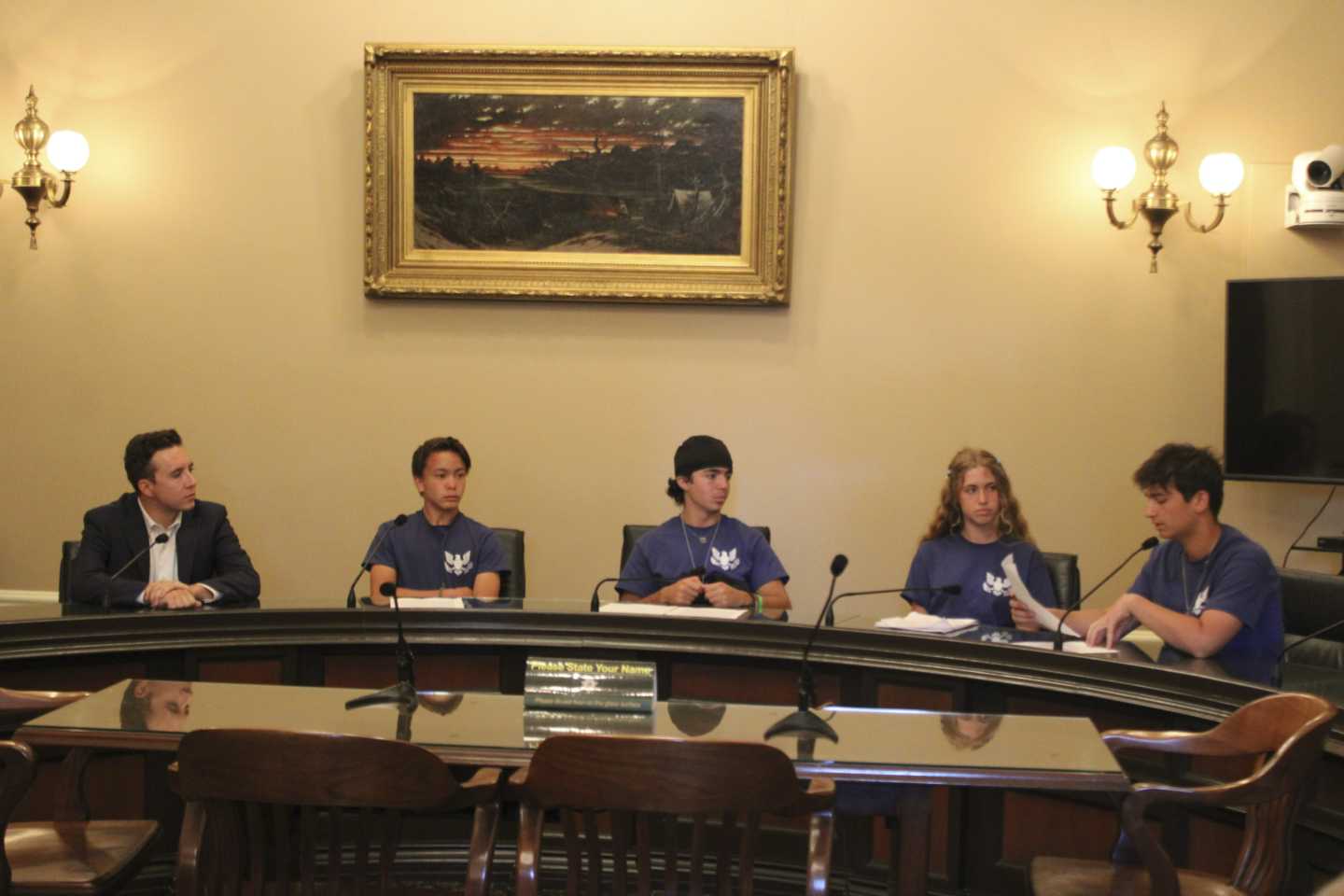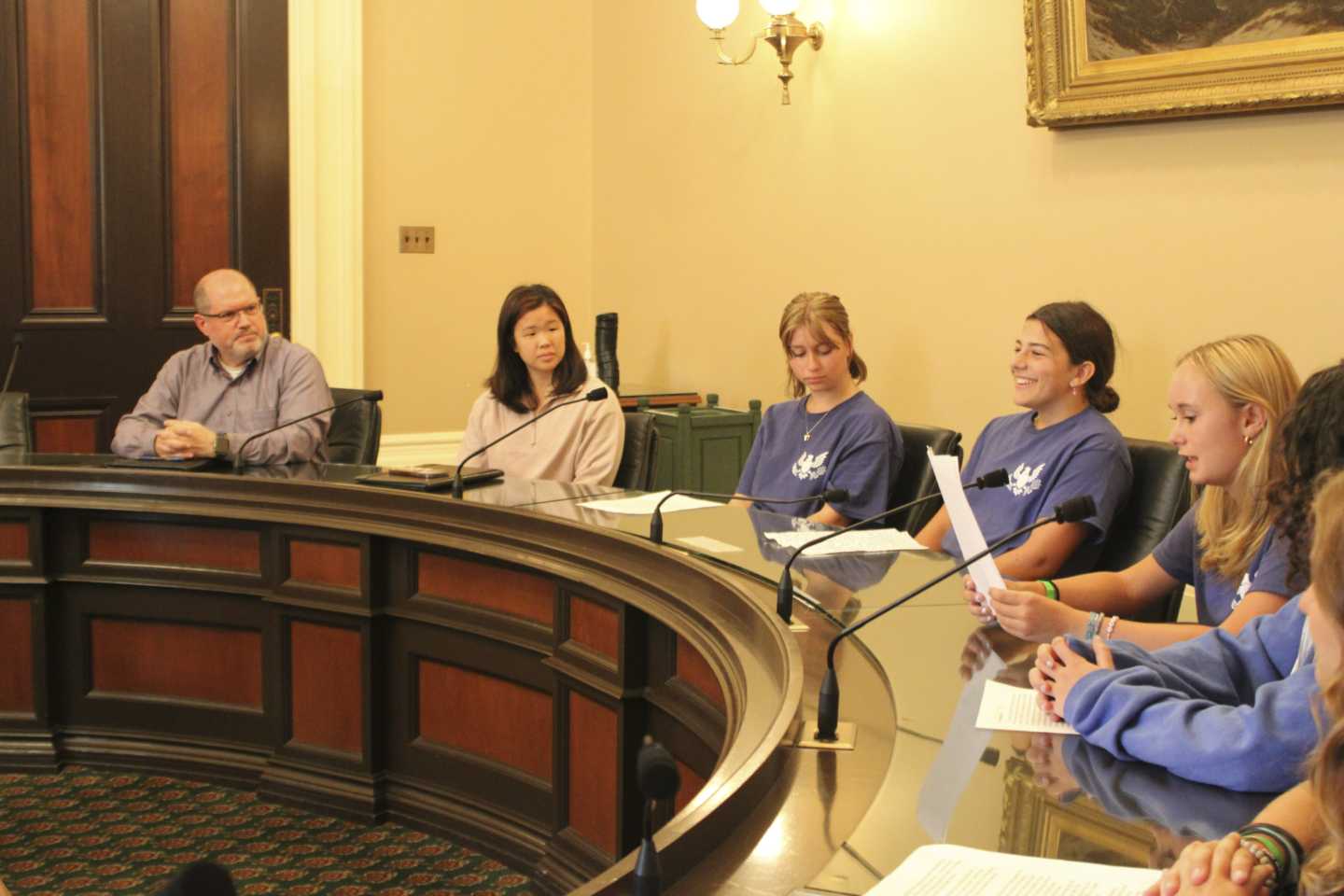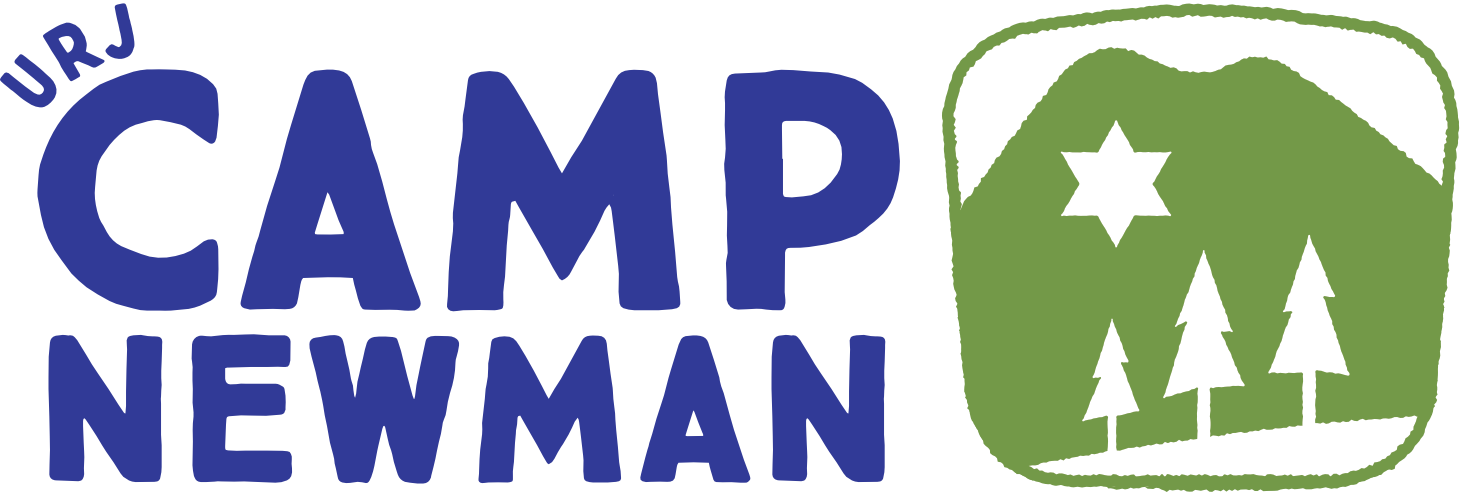Don’t Sink the Boat: Learning about collective responsibility and defending democracy in Hevrah 2024
By Levi Gettleman (Rosh Hevrah 2024 and 2nd Year Rabbinical Student at HUC)
“Rabbi Abba said that Shmuel said: For three years Beit Shammai and Beit Hillel disagreed. These said: The halakha is in accordance with our opinion, and these said: The halakha is in accordance with our opinion. Ultimately, a Divine Voice emerged and proclaimed: Both these and those (eilu v’eilu) are the words of the living God.” (B. Eruvin 13b).
“Rabbi Shimon bar Yochai taught a parable: Men were on a ship. One of them took a drill and started drilling underneath him. The others said to him: What are you sitting and doing?! He replied: What do you care. Is this not underneath my area that I am drilling?! They said to him: But the water will rise and flood us all on this ship.” (Vayikra Rabbah 4:6).
After looking at a number of news headlines accounting the threats to American democracy from the past year ranging from “AI Robocalls encourage voters to not show up” to “Over 300 anti-protest bills proposed in state legislatures”, I brought Hevrah some dozen Jewish texts related to these issues. The campers picked these two as emblematic of our Jewish responsibility in this day and age. Fundamentally, Democracy is the system of governance which emphasizes the voice and the decision-making power of each and every citizen. Thus, the right of every citizen to use their voice must be protected and seen as holy while the profound effect of each of our actions needs to be considered, lest we sink the ship we’re all aboard.
Hevrah, with its focus on bringing about change in the face of injustice, generally focuses on a single issue. Democracy is far-reaching and extends into so many arenas. To begin tackling the complexity of the issues, we broke into three groups, each with a focus on where Hevrah campers most directly saw or felt the impact of threats to democracy.
One group focused on threats to protest rights, a cornerstone of a functioning Democracy. This taskforce was particularly focused on SB 1287, the “Equity in Higher Education Act: prohibition on violence, harassment, intimidation, and discrimination”, requiring California’s Public Universities to institute a code of conduct that protects student rights to non-violence protest. Campers in this taskforce spoke about their experiences and anxieties regarding protests in their high schools and university campuses around them over the past year.
Another group saw threats to voting rights as a central threat to address. Seeing injustice in the disenfranchisement of incarcerated citizens and the role of voting in preventing recidivism, this group advocated for AB 544 creating a voting pilot program in county jails. This taskforce also lobbied for AB 2642, imposing stricter penalties on voter intimidation, speaking to their own concerns about voting as potentially dangerous in our current political climate.
Finally, the third group looked at threats on media and the press. AB 2655, the Defending Democracy from Deepfake Deception Act, was particularly relevant to campers who experienced AI-made content in their social media feeds and worried about being able to identify this content and its misinformation. Likewise, the group lobbied for AB 2455 which attempts to protect whistleblowers who play a key role in keeping government accountable.
The experience of lobbying in Sacramento is essential to the Hevrah program as a chance for campers to directly exert their influence as informed citizens on the official governing process. In deepening our understanding of Democracy, project day in Sacramento continued to include a visit to the Sacramento Bee where three journalists shared their work and how issues of free press intersect with other concerns about democracy. The day concluded on the capitol lawn with Tefilah and singing Hevrah’s song—a song of protest—on the capitol steps to demonstrate the importance of protest, assembly, and free religion on American Democracy.
 |
 |
Of course, protecting democracy is not only possible in the halls of power. At camp, Hevrah campers engaged in creative mediums including print making, Hebrew lettering, poster making, mural painting, music, and tefillah to spread their message of Democracy’s importance and fragility. This all culminated in Hevrah Festival where Hevrah campers took charge of an evening, showing off their creative messages and running three programs to help educate the rest of camp. One program sought to teach about the issues and bills they had lobbied for through a game of Jeopardy, one simulated the lobbying experience to empower other campers to use their voices, and one explored the different ways democracy is inherently Jewish, bringing text and stories alive.
Growing up at camp, I never was in Hevrah. So, this summer I didn’t fully know what to expect. I learned that Hevrah is so much more than a singular opportunity make a difference; it is a one-of-a-kind leadership program that empowers participants with the knowledge and skills to be changemakers beyond the month of camp. I cannot understate the impact that Hevrah is having on our state and our nation. I spent the summer inspired by the creativity, passion, and commitment of Hevrah campers towards protecting democracy. Some came into the session with interest and concern about these issues, others came in with little knowledge and less interest. By the end of the summer, every camper was eager to continue fighting to defend democracy and using their voice for change.
When up-and-coming leaders look out and see where the brokenness in our world intersects with Jewish ethics and value, you get Hevrah—standing up for what we believe in and fighting to create a new world where we all stand together as one.
